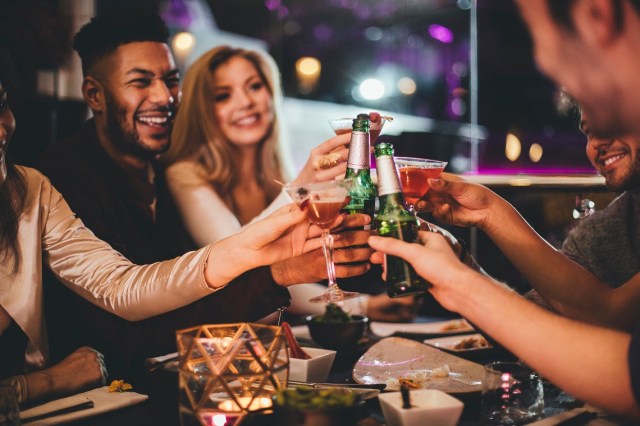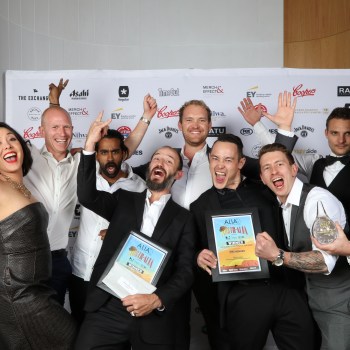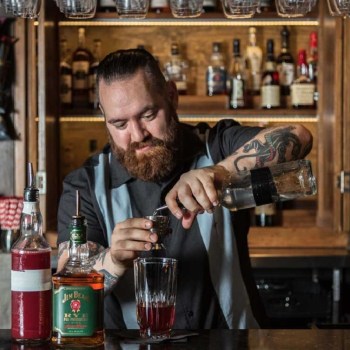While the country makes promising moves in flattening the curve and venues are told to prepare to reopen, it’s still too early to know when things will turn around and get back to normal, and even then, what this will look like at first. We all know it won’t be an easy flick of a switch.
Uncertainty like this, that has been all too common as the situation developed over the past few months, can have detrimental impacts on our mental health. In fact, according to an independent survey carried out on behalf of Barcats, 88 per cent of Australia’s hospitality workers are suffering from increased stress and anxiety due to the pandemic.
Of the respondents to the survey, 78 per cent had lost their job or been laid off because of COVID-19, and that is now having a detrimental impact on their mental health and wellbeing. Barcats CEO and Founder, Jeffrey Williams, said impacts are being felt in high percentages across all demographics and locations and driven by various stresses.
“Over a third of hospitality workers in Australia (38.89 per cent) express not being able to find another job for the foreseeable future as the leading cause of their increased anxiety and stress, with 33.61 per cent most concerned with not being able to afford their rent, bills and groceries,” Williams said.
“Being exposed to the virus, not being able to see work colleagues and having to withdraw money early from Super accounts are having little effect on the mental health of Australia’s hospitality workers.”
If you are feeling this way too, it’s important to know you are not alone. These numbers prove this. They also show that it’s okay if you are experiencing these affects on your mental health – your feelings are justified.
But what these numbers don’t show on their own, is the range of avenues there are in Australia right now to help your mental health, specifically formulated for the pandemic we’re going through. Right now we can all easily recite the good hygiene techniques to maintain our physical health, and it’s important that the maintenance of our mental health gets the same treatment.
Hospo For Life
Hospo For Life provides access to psychologists and mental health services 24 hours a day, 7 days a week to members of the hospitality industry.
Founder Liam Crawley encourages all those associated with the hospitality industry to reach out, foster healthy relationships and connect with each other to create a stronger community.
Anyone in the hospo community requiring a free and confidential counselling session is invited to contact them via email at info@hospoforlife.com.au or through their website www.hospoforlife.com.au.
They are running a weekly programme of #HospoHappyHour episodes on the Hospo For Life Facebook page featuring leading industry experts and guests, supported by Warner’s Distillery with a $5 donation from every bottle sold via Dan Murphy’s.
So far there have been a number of great chats by Liam with different people from across the bar and hospitality industry with the videos watched over 30,000 times.
Chats include:
- Tom Warner, distiller and founder of Warner’s Distillery, proud partner of the #HospoHappyHour
- Sven Almenning, founder of Ananas and the Speakeasy Group
- Cristiano Beretta, Assistant Manager and head of training at The Barber Shop and The Duke Of Clarence
- And the Editor of Bars and Clubs and TheShout, Andy Young
Beyond Blue
Not only do Beyond Blue have a dedicated Coronavirus Mental Wellbeing Service, they have specific resources to respond to mental health concerns about losing your job.
The sections talk about how to look after yourself while unemployed, and also how to promote a positive mindset. It includes advice from Beyond Blue’s Lead Clinical Advisor, Dr Grant Blashki, who gives the reminder that we should be kind to ourselves and do our best to engage in positive mental health practices.
“This is a time-limited thing. Yes, it’s going to be bumpy, but it’s going to end. Don’t lose that perspective. This is not a permanent state of affairs – this is temporary,” Dr Blashki said.
Dr Blashki has some great steps on what you can do to manage your mental health at this time here, which include:
- Be kind to yourself
- Connect with family, friends, colleagues and professionals
- Maintain a routine
- Exercise regularly
- Clear your mind (e.g with the Smiling Mind app).
You can access the full COVID-19 mental health resources from Beyond Blue here.
Lifeline
Lifeline are continuing to provide their services via phone, text, or webchat during the COVID-19 pandemic, and also have created some tips for how to manage your mental health in an online toolkit here.
Strategies they suggest, other than those described above, include:
- Manage your exposure to media coverage: “Be mindful of sources of information and ensure you are accessing good quality and accurate information.”
- Follow a ‘calm yet cautious’ approach: “Do your best to remain calm and be mindful not to contribute to the spread of panic…Ensure you are following directives issued by the government, medical advice and observe good hygiene habits.”
- Show compassion and kindness: “Remind ourselves that we can manage this much better together in solidarity, and that COVID-19 doesn’t discriminate.”
Find out more details about these strategies here. You can also get support from Lifeline through the following ways:
- Phone: 13 11 14 (24 hours/7 days)
- Text: 0477 13 11 14 (6pm – midnight AEDT, 7 nights)
- Chat online: https://www.lifeline.org.au/crisis-chat (7pm – midnight, 7 nights)
MensLine
Like the above services, MensLine is continuing to operate 24/7, with professional counsellors on hand to provide information and support. They have a great selection of tips here, which (other than those already described above) include:
- Go to trusted sources: “Think critically, analyse, check facts” and think before you share. Misinformation and myths can negatively contribute to your own and others’ mental health.
- Talk about it (but know when to stop): “if you feel you are focusing too much on the crisis, then be sure to let people know you’d like to change the subject.”
- Make future plans: “Making plans for when life returns to normal can help to keep things in perspective.”
Access the MensLine toolkit here. You can also call them on 1300 78 99 78 or register for online counselling.
These three services are a great place to start to manage your mental health. This is just the tip of the iceberg though, there are so many ways to get help or advice out there – you are not alone.
You might also find our Resources for Bartenders guide useful, featuring mental health tips, but also information about government subsidies and programs, ways to upskill or spend your time in iso, things to help your finances, and much more.



